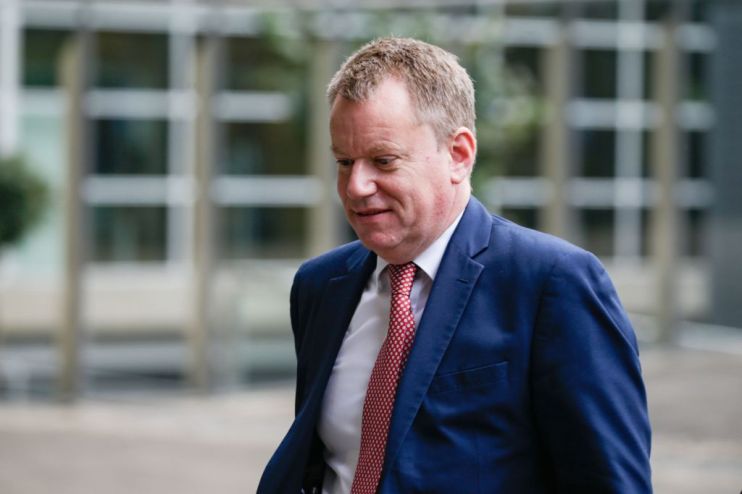David Frost doesn’t sugar-coat it for the EU

Trade deals are like sausages — it’s best not to see them being made.
But while any UK-EU deal will certainly be the result of high compromise and low politics, Boris Johnson’s chief negotiator popped his head out of the factory door last night to offer some thoughts on his recipe for success.
David Frost, addressing an audience at Universite Libre de Bruxelles, tackled head-on the issue of regulatory alignment and EU demands for a level playing field.
He said “to think that we might accept EU supervision on so-called level playing field issues simply fails to see the point of what we are doing…. it isn’t a simple negotiating position which might move under pressure — it is the point of the whole project.”
Bordering on the undiplomatic, he went on: “How would you feel if the UK demanded that, to protect ourselves, the EU dynamically harmonise with our national laws set in Westminster and the decisions of our own regulators and courts?”
Frost was echoing another major speech on UK-EU relations given at a different European university in 1988, when Margaret Thatcher told the College of Europe in Bruges: “We have not successfully rolled back the frontiers of the state in Britain, only to see them re-imposed at a European level.”
Frost’s speech is both significant and unsurprising. It is significant because trade negotiators on the eve of locking horns do not normally make such philosophical public interventions.
But its content is unsurprising, given that everyone from Mark Carney to former chancellor George Osborne have all now accepted, and stated publicly, that the UK simply cannot outsource its regulations to the EU.
One of the first people to recognise this was Jonathan Hill three years ago. Having stepped down as the EU’s commissioner for financial services in the wake of the referendum result, Hill (who voted Remain) told the House of Lords that the UK had no choice but to diverge from EU rules.
He was talking specifically about the City (as were Carney and Osborne) and it’s on the detail of financial market access that so much of the coming negotiations will focus.
Before he quit as chancellor, Sajid Javid used an article in this newspaper to expand on this point and make the case for a rolling regime of equivalence to ensure continued trade in financial services between the UK and EU.
It was a pragmatic approach, given the alternatives, but as the capital markets think tank New Financial makes clear today, it would also be inadequate over the long term. New Financial suggests equivalence could provide “a temporary and politically acceptable bridge in key sectors for both the EU and UK to adjust to life after Brexit.”
What that life could look like depends on whether we take David Frost at his word.
Main image: Getty
